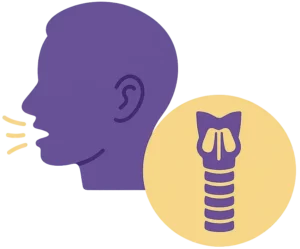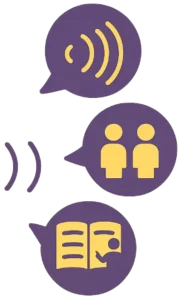
Voice disorders affect the pitch, loudness, quality, or overall use of the voice, making communication difficult or even painful. These disorders can occur in both children and adults and may result from vocal overuse, injury, illness, or neurological conditions affecting vocal cord function.
Our evaluation process includes:
Based on the assessment, individualized treatment may involve:
We tailor all therapy to the individual’s age, communication goals, and personal needs.

We work closely with families to:
If you or your child is experiencing voice changes or discomfort, we’re here to help.
Call (845) 360-9323 or Request an Appointment today to learn more.